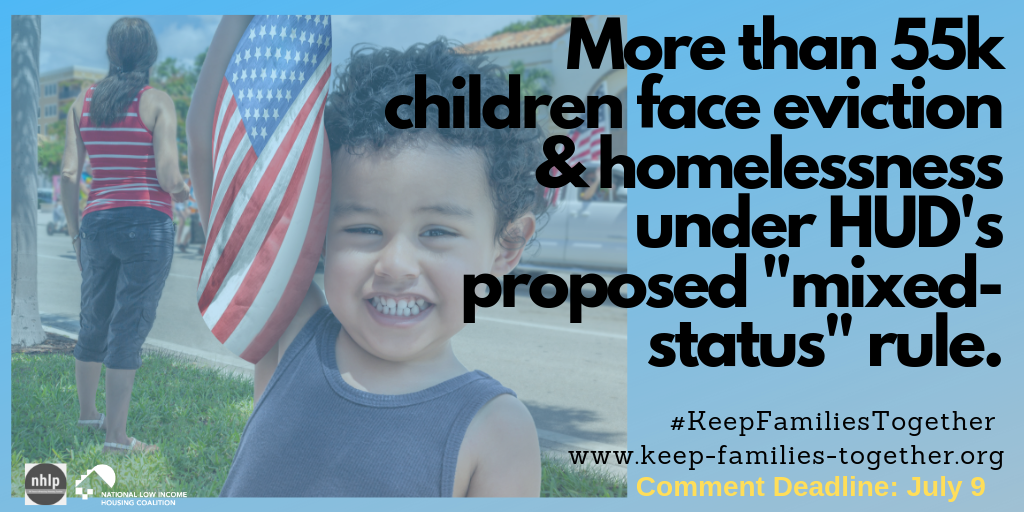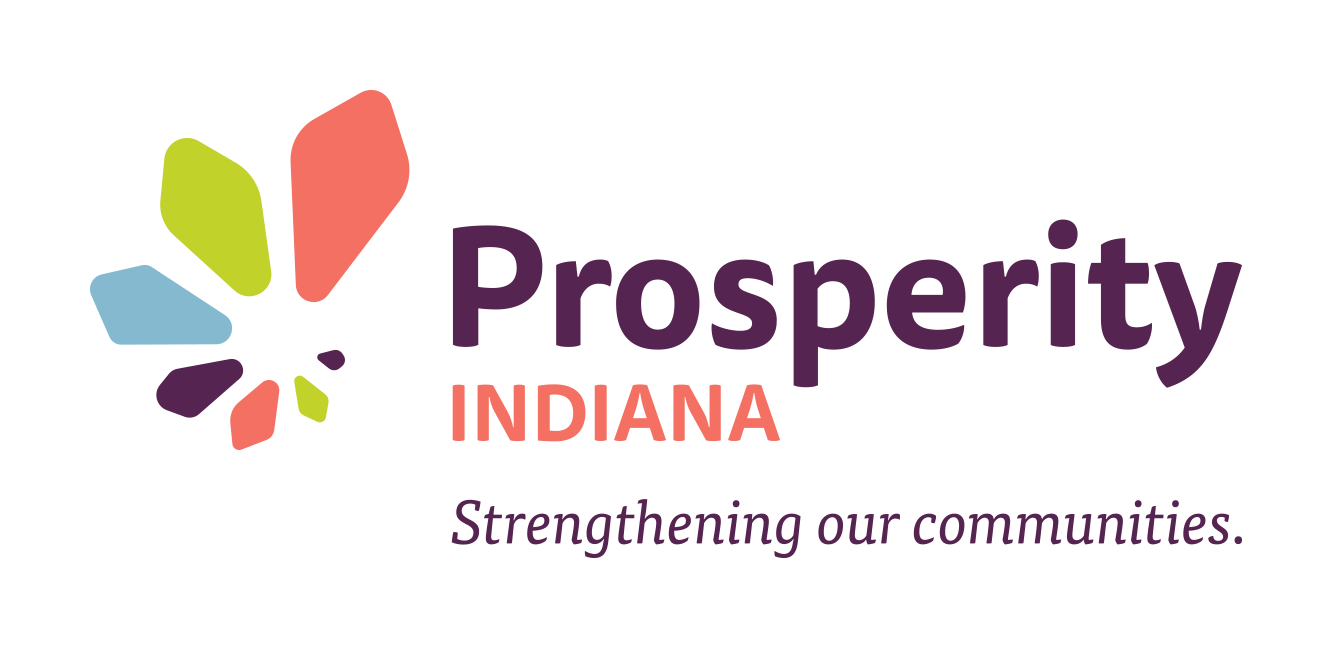
Prosperity Indiana provided the following comments to the Department of Housing and Urban Development's proposed rule to prohibit “mixed-status” families from living in public housing and Section 8 units.
HUD claims that the rule is necessary to prevent undocumented immigrants from benefiting from federal housing assistance. However, existing law already does this. Right now, a family’s rent subsidy is decreased (or prorated) to account for household members who are ineligible for the assistance based on immigration status.
The truth is that this rule proposal
- does not alleviate long waits for housing assistance.
- promotes misinformation about immigrant communities.
- imposes onerous documentation requirements for thousands of housing agencies and private property owners.
- represents a tremendous cost and burden for housing authorities and private owners of Section 8-assisted properties.
- will most certainly affect households beyond those who are mixed-status as studies show that citizens with low incomes are more likely than others to lack both proof of citizenship or other forms of identification.

Docket No. HUD-2019-0044
RIN 2501-AD89
July 9, 2019
Office of General Counsel, Rules Docket Clerk
Department of Housing and Urban Development
451 7th Street SW, Room 10276
Washington, DC 20410
To Whom It May Concern:
Prosperity Indiana appreciates the opportunity to express our strong opposition to Department of Housing and Urban Development’s (HUD) proposed rule that would impose new burdensome, damaging changes regarding the "verification of eligible status.” Our organization represents a network of more than 170 community development organizations dedicated to helping low-income Hoosiers achieve and maintain housing and economic security in each of our state’s 92 counties.
Our members strive to ensure all Hoosiers can access safe, stable and affordable housing. This proposal to prohibit “mixed-status" families from living in public and federally-assisted housing through Housing Choice Vouchers and Section 8 Project-Based Rental assistance, the three largest HUD housing programs, undermines those efforts. This rule would force families who receive benefits to face eviction from subsidized housing after 18 months for living with those who are ineligible for assistance.
Secretary Carson has characterized the proposed rule as a means to help “legitimate American citizens,” so that we can “put America’s most vulnerable first.” In explaining the justification for implementing this proposal, Carson noted that “there are hundreds of thousands of children, as well as elderly and disabled, who are on the waiting list who are legal American citizens.” In our view, it is most important to note that this rule will do nothing to further achieve those aims, as current law already prohibits ineligible households from receiving assistance.
Section 214 states that the Secretary of HUD is prohibited from making financial assistance available to persons other than United States citizens, nationals, or certain categories of eligible noncitizens in HUD's public and specified assisted housing programs. Further, United States Code defines how HUD should comply in upholding that regulation, while allowing for mixed-status households.
42 U.S. Code § 1436a(b)(2) states:
“If the eligibility for financial assistance of at least one member of a family has been affirmatively established under the program of financial assistance and under this section, and the ineligibility of one or more family members has not been affirmatively established under this section, any financial assistance made available to that family by the applicable Secretary shall be prorated, based on the number of individuals in the family for whom eligibility has been affirmatively established under the program of financial assistance and under this section, as compared with the total number of individuals who are members of the family.”
As clearly outlined, housing for mixed-status households is allowed, albeit prorated to ensure the regulation is fulfilled and those who are not eligible for housing assistance do not receive a subsidy.
Instead of providing a new protection against potential abuse, the rule promotes misinformation about immigrant communities. Mixed-status families are those that include both members who are eligible and ineligible for housing assistance based on their immigration status. Being an immigrant who is ineligible for housing assistance does not mean they are not legal residents or undocumented. Immigrants can have legal status and still not be eligible for federally assisted housing programs.
Additionally, the proposal does not alleviate long waits for housing assistance. The proposal’s practical impact will be to force families of mixed immigration status to break up to receive housing assistance, forego the assistance altogether, or face termination from the programs. By HUD’s own analysis, this measure would force more than 55,000 children, who are U.S. citizens or legal residents, to face eviction under the proposed rule . This comes at a time when community development organizations throughout Indiana, and in other states across this country, are working harder than ever to confront an affordable housing crisis. Our communities can ill afford this misguided policy when there are already measures ensuring public funds are being used to assist only eligible individuals.
In Indiana, 46 percent of renters are cost-burdened and 86 households are evicted every day. Our state has a 134,485-unit deficit of housing that is affordable and available for extremely low-income households (those earning at or below 30 percent of area median income). Only one-in-four households eligible for federal assistance receives it. Prosperity Indiana shares HUD’s concern about long waiting lists for housing assistance. However, we believe the Administration should focus on increasing budget requests to address the critical need for expanded affordable housing production and preservation, rather than destabilizing housing or forcing family separation for thousands of eligible, legal residents and citizens.
The proposed rule imposes new, expensive and onerous documentation requirements for thousands of housing agencies and private property owners, who would have to collect documents “proving” the citizenship for the more than nine (9) million housing-assisted residents under the age of 62 to be screened through the Systematic Alien Verification for Entitlements Program (SAVE) within the Department of Homeland Security. This added reporting is a waste of resources to require citizens, who have already attested under penalty of perjury, to “prove” that they are U.S. citizens.
Critically, this will most certainly affect households beyond those who are mixed-status. Studies, including one from the Brennan Center for Justice, show that citizens with low incomes are more likely than others to lack both proof of citizenship or other forms of identification . The Brennan Center study found 12 percent of U.S. citizens with incomes below $25,000 lack proof of citizenship, and adults earning under $35,000 are twice as likely as others to lack a government-issued photo ID. The elderly, people of color and women are also less likely to have identifying documents. Accordingly, the proposed rule will likely affect eligible households without mixed-status, as well as those that are mixed-status.
Compliance with these regulations represents a tremendous cost and burden for housing authorities and private owners of Section 8-assisted properties. In Indiana, no protection from source of income discrimination exists, so affordable housing organizations and shelters statewide already report challenges in helping low-income individuals and families access affordable housing, particularly because landlords do not want to accept Section 8 vouchers. This rule will further deter private housing providers from participating in Section 8 programs, worsening already substantial barriers to housing affordability for low-income Hoosiers.
On behalf of our network striving to ensure more residents of Indiana can prosper and live in safe, secure housing, we urge HUD to withdraw this proposal and appreciate your consideration.
Sincerely,
Jessica Love
Executive Director

